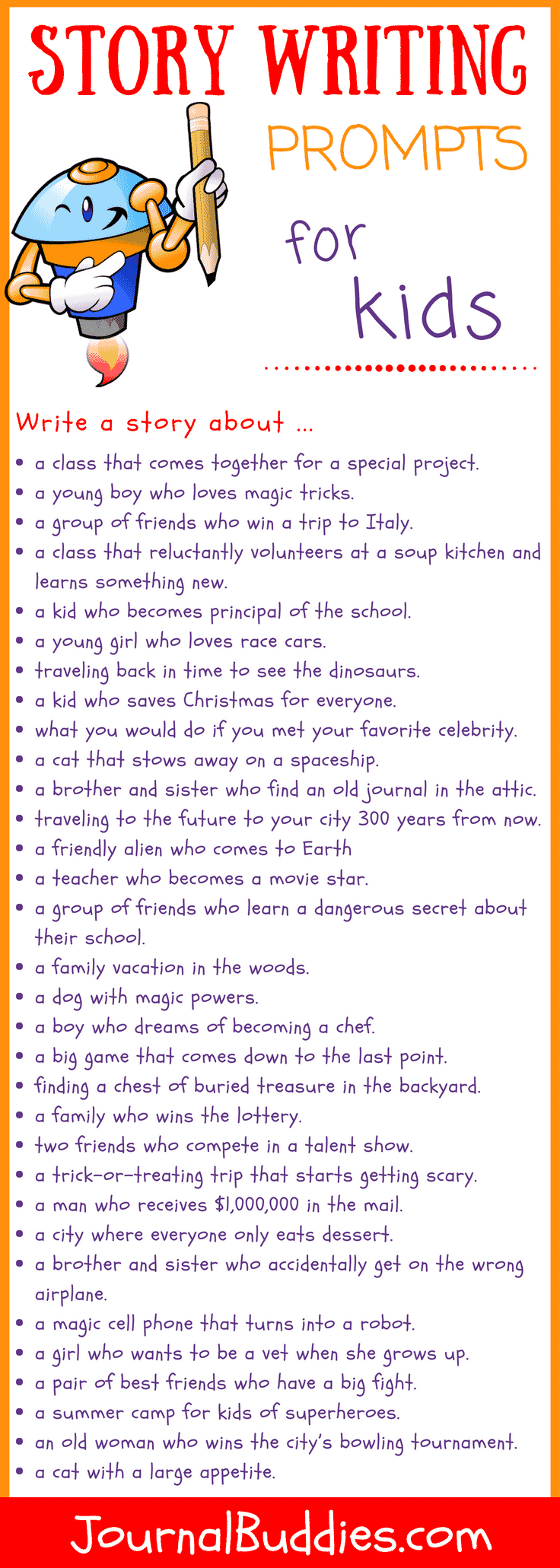
Do something new with your writingġ) "I'm sitting writing this at my desk."Ģ) "I write this sitting in the kitchen sink." And the drone and hiccup of a clothes dryer, the nasal contention of a leaf blower, the ripening of local apples in a paper bag, the smell of the gasoline with which Alfred Lambert had cleaned the paintbrush from his morning painting of the wicker love seat.”
#STORYWRITING HELP WINDOWS#
Storm windows shuddered in the empty bedrooms. Red oaks and pin oaks and swamp white oaks rained acorns on houses with no mortgage. Trees restless, temperatures falling, the whole northern religion of things coming to an end. The sun low in the sky, a minor light, a cooling star. You could feel it: something terrible was going to happen. “The madness of an autumn prairie cold front coming through. Literary fiction, in my mind, is at least as true as real life, and just as tough to get right. The best novels never make us doubt that every sentence was weighed for truth and beauty against the world and the author’s understanding.


I think compelling writing is a result of specific language married to intimate insights or experience, and that literary fiction has a sense of gravity that’s informed by deep history. But if the details feel off, or are absent or vague, I won’t read on. If the first page conveys a mastery of place, time, and language, I can trust the novel is borne of good research, and I’ll relax into the story. Something that draws a reader into a literary novel is the sense that the author has a deep knowledge of everything they’re writing about.
#STORYWRITING HELP PRO#
Pro tip: Starting your writing with dialogue is considered a no-no by some, but can actually be a great way of achieving this effect. Your opening must sustain your readers' interest in some way if you are to keep them reading through to chapter two, and reveal more and more information in the plot points to come. You are going to get one Royal Beating."Īt the same time, it's important that the start of your book isn't entirely cryptic. Make them immediately ask of your characters: What is this place? Why are they here? What are they doing? Who is involved? Where is this going? If you can pique your readers' curiosity from the very first sentence, you can will them to keep reading before they even know they like your book. There are many ways to start a novel, but in my experience, the most successful beginnings have the magnetic effect of appealing to an emotion that all readers possess: curiosity. Learn how Reedsy can help you craft a beautiful book. PRO-TIP: Want to find out which famous author you write like? Take our 1-minute quiz below! Though he had taken off his school sweater and trailed it now from one hand, his grey shirt stuck to him and his hair was plastered to his forehead.” “The boy with fair hair lowered himself down the last few feet of rock and began to pick his way toward the lagoon. If you go this route, you need to be sure your opening action is compelling enough that the reader is prepared to wait for character setup later. A classic example is Lord of the Flies, which starts with the boys on the island and then fills in the details of how they got there later. Novels that open in medias res (latin for "in the midst of action") are often really effective at immediately grabbing the reader and establishing stakes and tension. With the brass nozzle in his fists, with this great python spitting its venomous kerosene upon the world, the blood pounded in his head, and his hands were the hands of some amazing conductor playing all the symphonies of blazing and burning to bring down the tatters and charcoal ruins of history.” “It was a special pleasure to see things eaten, to see things blackened and changed. Context and background will come later, but a compelling image can be a fantastic hook. By focusing on sensory detail right at the start - sight, sound, taste, touch, smell - and by conveying a particular, defined setting, you can absorb readers immediately within the tangible world of your novel. One of the best ways to avoid this is to begin on an image. Many editors will tell you to avoid exposition - the dreaded info dump - at the start of your manuscript. “It was a bright cold day in April, and the clocks were striking thirteen.”

If you're in the mood to get some similarly twisty ideas, you can go here to see a list of 70+ plot twist examples. In other words: think of how people will be expecting the book to start, then take the plot in another direction. Think of the opening to Nineteen Eighty-Four, or Iain Banks’s, The Crow Road, “It was the day my grandmother exploded.” Of course, your opening doesn’t have to be as outrageous as these but always aim for the unusual.


 0 kommentar(er)
0 kommentar(er)
